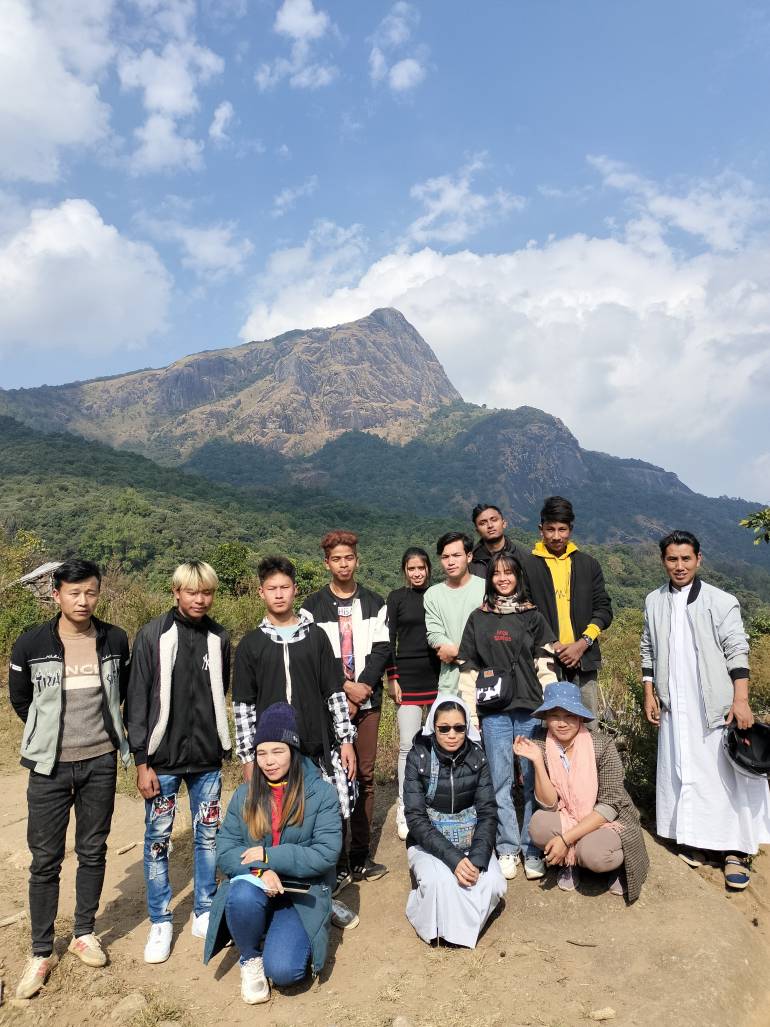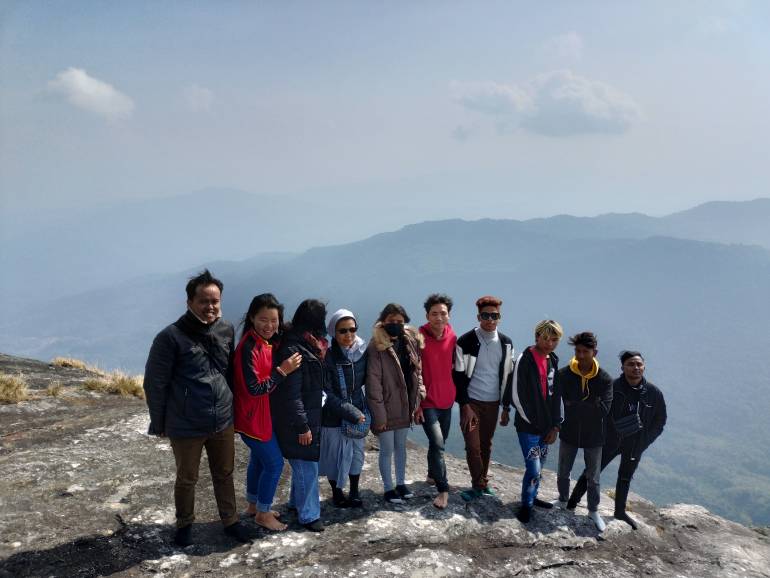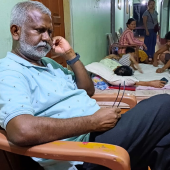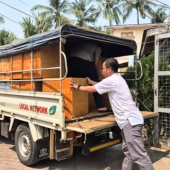Myanmar priests reach Catholics in remote areas amid crises

Myanmar priests reached the Catholics in the remote area, amid the crises, for the Christmas tour on December 28.
The associate priest, Father Dominic Gu Ta, and Father Joseph Chwar Thar made a Christmas tour to 'Ant Bwel Tawng' (Wonderful Mountain) in Mogok parish, Lashio Diocese in Myanmar.
The village is 45 miles away from the parish center.
Due to difficult roads, priests seldom arrive there. There are no nearby homes, only two catholic Lay families.
"We are very happy that we got New Year's Mass. We thought we wouldn't get Mass in this year," said Assumpta Gu Wu Mi, one of the villagers.
They live on breeding pigs and chickens and also cultivating tea plants.
There is no road or street. To buy their basic needs like oils, rice, and other necessary things, the villagers risk their lives by riding motorbikes on rugged and narrow lanes to Mogok town.
"I love living in the forest more than living in the town. Our Mogok is famous for Ruby Land, but we, the poor, have no opportunity to do it. There is no social justice. Thus, I came to this remote place where I was at ease with my family. Besides, our country's situation is not stable," Stephen Chwar Lay confided in his situation, "my family is safe here."
Father Gu Ta, Father Chwar Tar, and their youth group stayed a night with the family members there on December 28, teaching catechism and gospel hymns to those two Lisu Catholic families.
The handful of Catholics were overjoyed that their priests remembered them even amidst the turmoil of the country.

'Ant Bwel Tawng' or ‘Wonderful Mountain’ is the second-highest mountain in the Mogok area. The small village is located at the foot of the other side of the mountain.
If one wants to go there, one needs to climb that huge mountain first. After that one must go down to the foot of the mountain where two poor families live.
Mogok town is located 200 kilometers north of Mandalay and is popular for its ruby. - By Chwar Thar
Radio Veritas Asia (RVA), a media platform of the Catholic Church, aims to share Christ. RVA started in 1969 as a continental Catholic radio station to serve Asian countries in their respective local language, thus earning the tag “the Voice of Asian Christianity.” Responding to the emerging context, RVA embraced media platforms to connect with the global Asian audience via its 21 language websites and various social media platforms.














